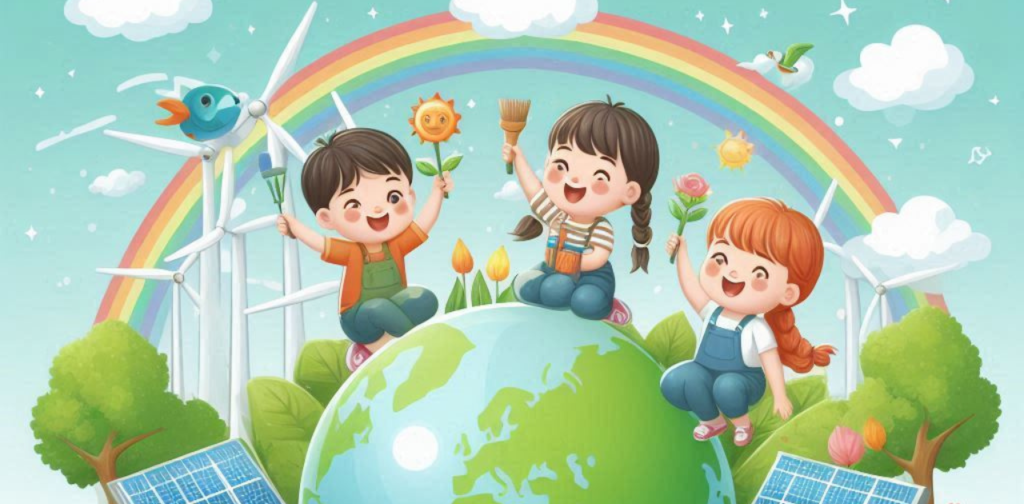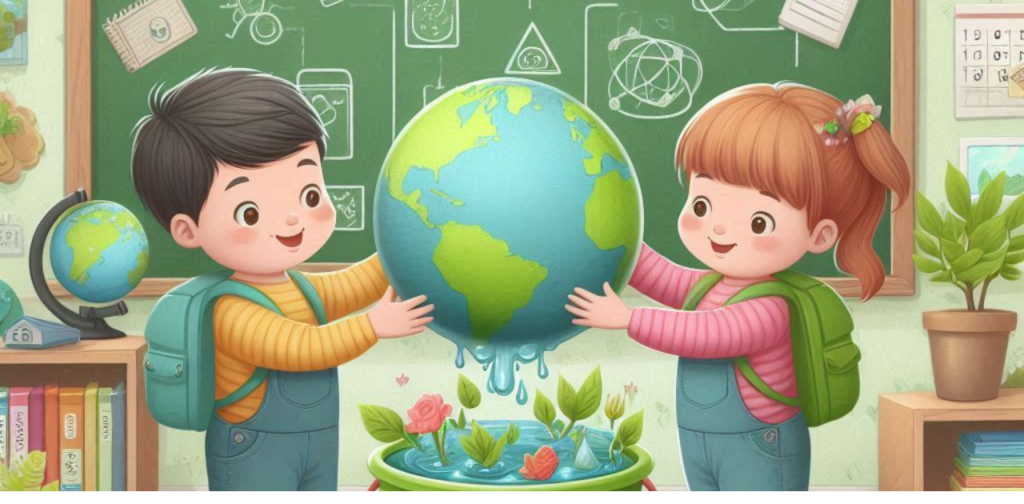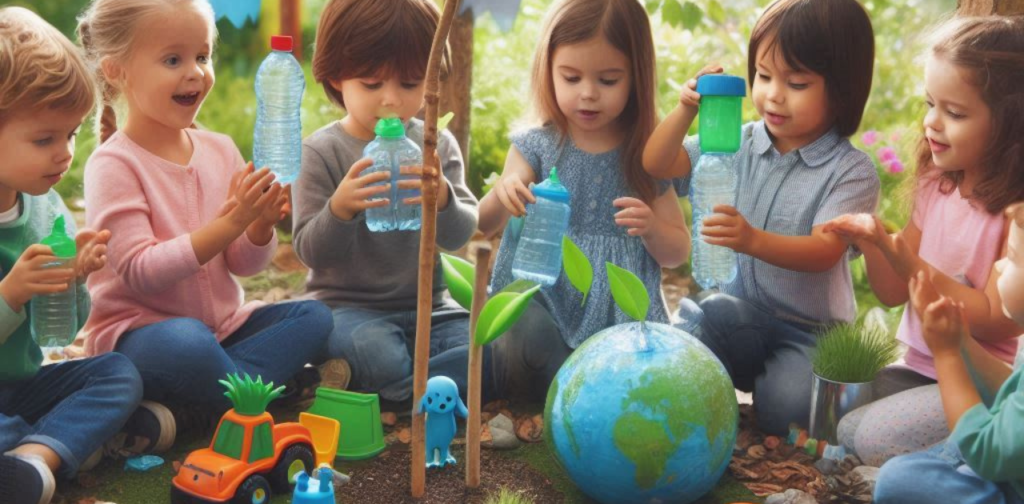Environmental Education for Preschoolers: Nurturing Young Environmental Citizens
Introduction
Early childhood is an important period for developing environmental awareness and developing a love of nature. By incorporating environmental education into the preschool curriculum, we can prepare young minds to become responsible stewards of our planet. This article explores engaging activities and strategies for promoting environmental education in early childhood settings.

Body
Major Components of Environmental Education Curriculum:
- Exploring Nature: Encouraging children to observe, question and explore the natural world.
Sensory Experiences: Providing opportunities to engage with various natural elements. - Recycling and waste reduction: Teaching children about the importance of recycling and reducing waste.
** Resource conservation:** Understanding the value of water, energy and other natural resources. - Animal and Plant Life: To know about different species and their habitats.
- Sustainability: Introducing the concept of living in harmony with the environment.
Engaging Activities for Young Learners:

- Outdoor Exploration: Taking nature walks, visiting parks, and exploring local ecosystems.
- Gardening: Planting seeds, caring for plants, and observing growth.
- Recycling and Upcycling: Making crafts and projects using recycled materials.
- Water Conservation: Learning about water usage and experimenting with water conservation.
- Study of animals and plants: Observing and caring for animals and plants in the classroom.
- Story and Role Playing: Incorporating environmental themes into imaginative play.
Table: Environmental Education Activities
| Activity | Learning Objectives |
|---|---|
| Nature walk Observation, exploration, sensory experiences | |
| Horticulture Responsibilities, life cycles, plant growth | |
| Recycling and Upcycling | Waste Reduction, Creativity |
| Water conservation Resource Management, Problem Solving | |
| Study of animals and plants Compassion, respect for living beings | |
| Storytelling and Role Play | Imagination, social skills, environmental awareness |

Result
By incorporating environmental education into the preschool curriculum, we can create a generation of environmentally conscious citizens. Through hands-on experiences and age-appropriate learning activities, children develop a strong foundation for understanding and caring for our planet.
Frequently Asked Questions
- How can I incorporate environmental education into my daily routine?
- Integrate nature-based activities into playtime, meals and transitions.
- What if I don’t have access to a garden or outdoor space?
- Bring nature indoors through indoor plants, nature-based books and sensory activities.
- How can I involve parents in environmental education?
- Encourage family nature outings, share information about environmental issues, and make collaborative projects.
- What age-appropriate environmental topics should I teach preschoolers?
- Focus on simple concepts like recycling, conservation, and animal care.
- How can I assess children’s understanding of environmental concepts?
- Observe children’s behavior, ask open-ended questions, and create opportunities for them to express their knowledge.

Environmental education
is a lifelong journey that begins in early childhood. By giving children a strong foundation in environmental responsibility, we empower them to become responsible and caring citizens of the planet.